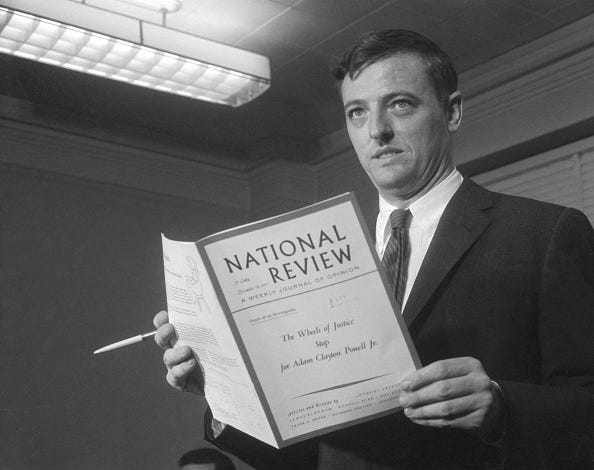William F. Buckley Jr.
William F. Buckley Jr. was an American publisher, journalist, and political commentator who also worked closely with both the FBI and the CIA. Buckley, widely considered an important influence in conservative politics, served in the Army during World War II and attended Yale University in the years after the war. At Yale, he became an active member of the Conservative Party and the Skull and Bones society, and served as chairman of the Yale Daily News and informant for the FBI. Buckley spent two years with the CIA in the early 1950s, including working for Howard Hunt in Mexico City. Hunt later helped organize the Watergate break-in that led to the downfall of Richard Nixon's presidency. After leaving the CIA, Buckley founded the National Review in 1955. The magazine, which focuses on news and commentary pieces on political, social, and cultural affairs, is said to have played a significant role in the development of conservatism in the U.S. According to public documents, Buckley was also on good terms with FBI director J. Edgar Hoover–at least for a few years. During his time at the FBI, Hoover had his aides leak selected information to reliable reporters, editors, and columnists in order to promote a positive image of the bureau. The documents show that in 1966, Buckley was on the list of reporters deemed friendly and reliable. They also show that he was removed a year later for an editorial in which he “attempted to be humorous at the expense of the Director.” A 1985 article in the Washington Post described Buckley as having “the eyes of a child who has just displayed a horrid use for the microwave oven and the family cat."


